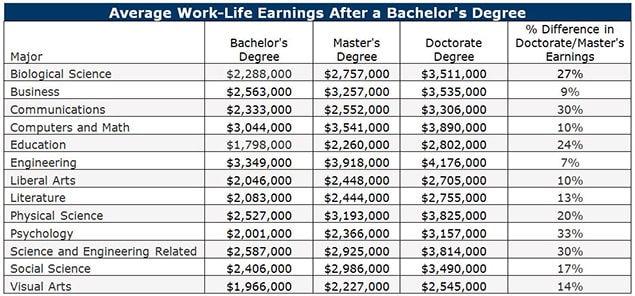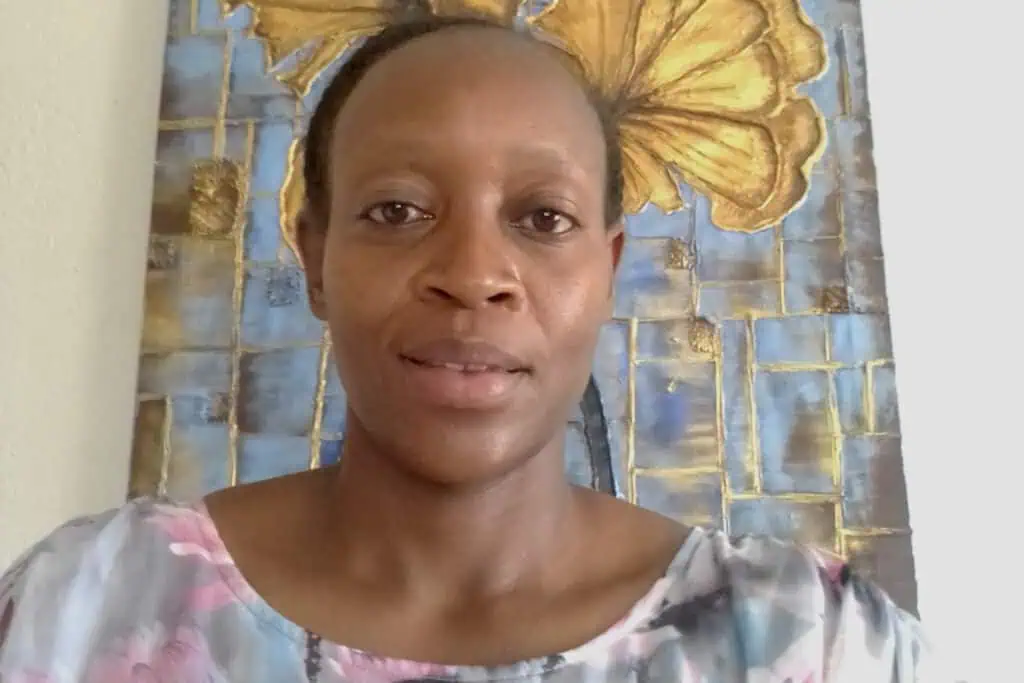Salary Difference Between Master’s and Ph.D. Degrees
When undergraduates are thinking about studying abroad for an advanced degree in the U.S., they have two options: apply to a master’s degree or doctoral degree program. Here we will talk about the differences between master’s and Ph.D. degree programs and also compare the lifetime earnings of both degrees in respective occupations.
What Are Master’s Degrees?
A master’s degree is the first level of graduate study designed to give you a solid education in a specialized field after you finish a bachelor’s degree. It usually requires one to two years of full-time study. Master’s degrees tend to be a more career-oriented program. Upon completion, graduates are expected to have advanced knowledge within a specialized field and have analytical, evaluation, and professional application skills. One disadvantage is that there are limited scholarships for international students who are master’s candidates in the U.S.
What Are Ph.D. Degrees?
Ph.D. is an abbreviation for Doctor of Philosophy, which is a doctoral degree. Obtaining a Ph.D. degree means you have an exclusive specialty in your field. Ph.D. candidates are expected to engage in thought experiments, reason about problems, and solve problems in sophisticated ways. Students can apply for a Ph.D. program directly after completing a bachelor’s degree, while some schools also require a master’s degree before entering a Ph.D. program. The exact number of years varies from four to eight years, which highly depends on the field, the student’s research topic, and the student’s skills. A Ph.D. degree also requires students to pass comprehensive exams and a large scholarly project called a dissertation.
For international students, financial aid opportunities might be a big motivation to apply for a Ph.D. degree. Schools recognize that those trying to acquire their doctoral degree need more assistance due to the length of study.
Salary Differences Between Master’s and Ph.D. Graduates
After looking at the different commitments the two degree programs require, you may also want to look at the average salaries for master’s and Ph.D. graduates. Below is an income chart from the United States Census Bureau about employee’s work-life earnings that refer to different occupations and education levels attained.
Note: This chart is for 25 to 64-year-olds who are working full-time, year-round.
Source: www.census.gov
Overall, the average life earnings of doctorate holders are higher than other degree holders within the same industries. However, the life earning gap between master’s and Ph.D. holders varies on different majors or fields of study. For example, in biological science occupations, a Ph.D. holder earns 27 percent more than that of a master’s holder. Whereas in some other fields, such as business, there is only a small difference of 8 percent.
If you are looking for ways to improve your career, obtaining an MBA degree may be worthwhile financially as graduates receive similar work-life earning as Ph.D. graduates. But if you’re looking to pursue a Ph.D. degree within a highly focused field, then check out the top 50 U.S. colleges with the most international graduate students.
So, consider pursuing a Ph.D. degree if you truly love your field, enjoy your studies, and want the benefits and prestige associated with the doctoral degree. If you are looking for a change in field, industry, or a promotion, then getting your master’s might be enough.
Do you want to further your education and need funding? Check out our free Funding Your Education e-guide.






